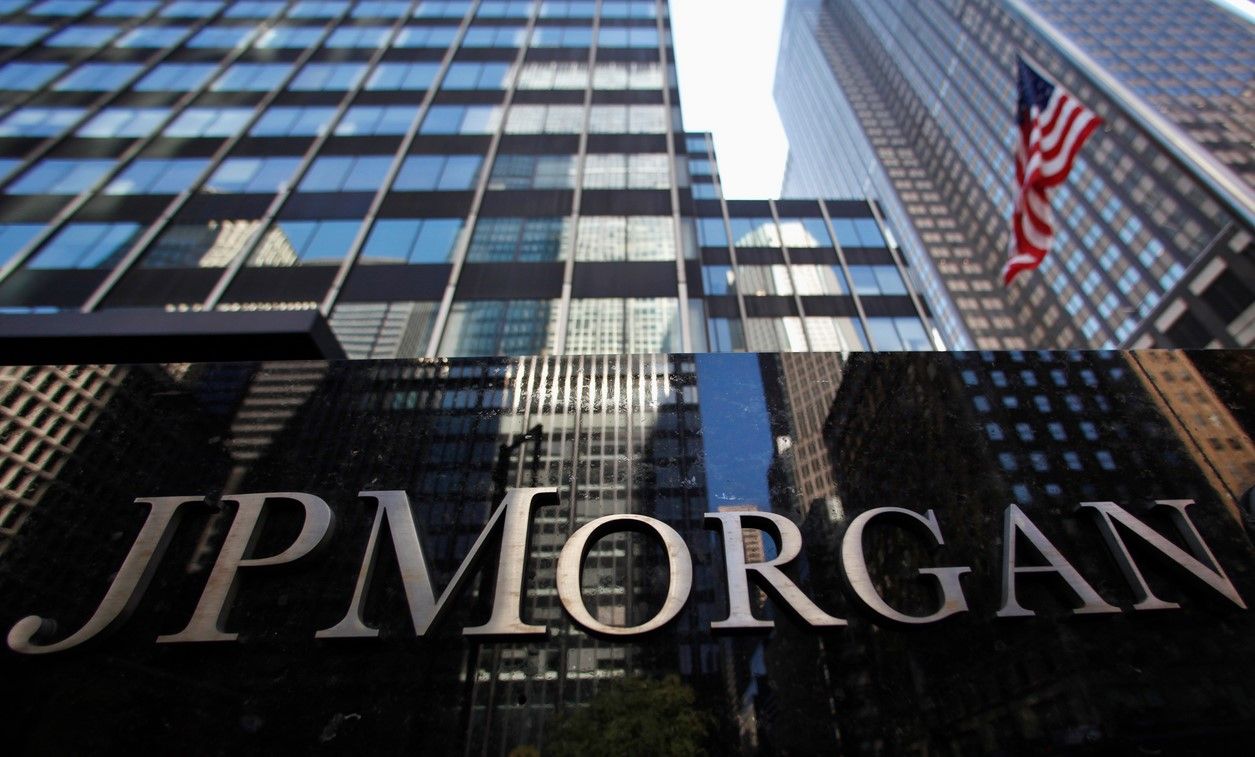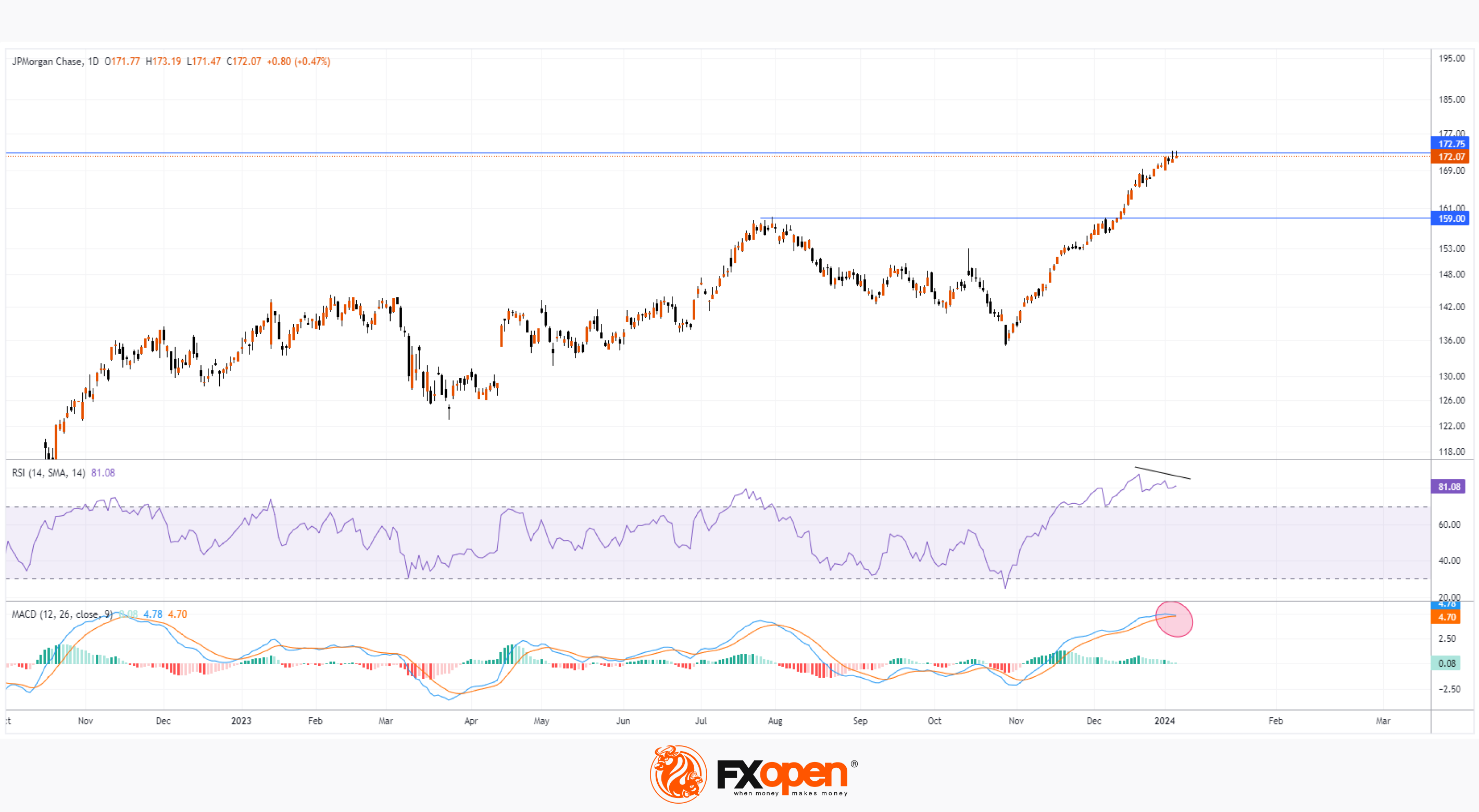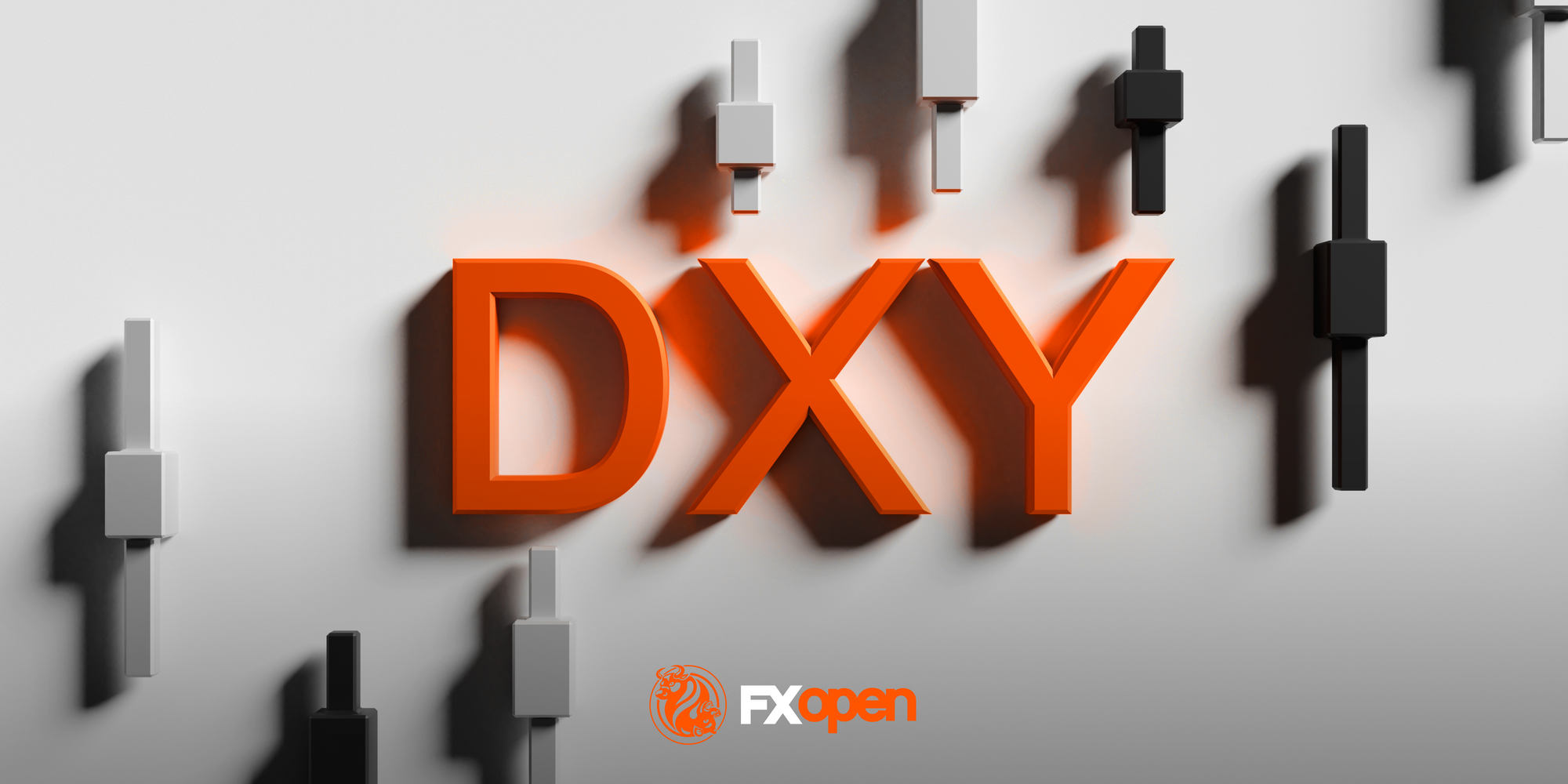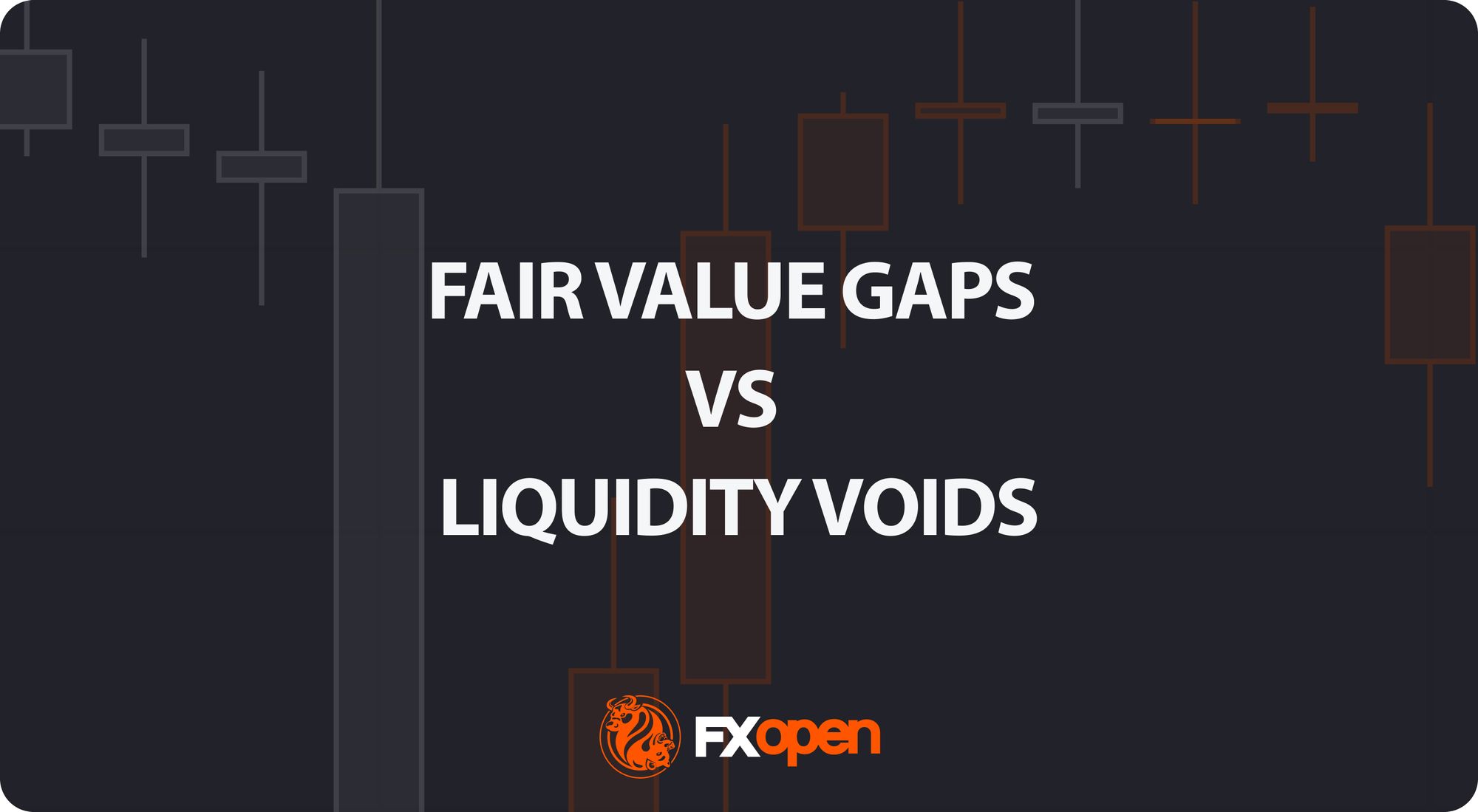FXOpen

This week the reporting season begins — company results for the 4th quarter will certainly become one of the most important drivers of stock index prices, along with the publication of news about inflation, the labor market, and statements from the Federal Reserve.
Large banks will traditionally be among the first to report: JP Morgan, Bank of America, Wells Fargo, Citi. The banking sector looks frankly strong at the beginning of 2024. While the S&P-500 is down 1% in the first week, the XLF financial sector fund is holding near the year's opening price.
According to MarketWatch, bank stocks are becoming increasingly popular amid expectations of a positive yield curve in the second half of 2024, and analysts have set “buy” ratings on shares of Goldman Sachs, Morgan Stanley and Wells Fargo (WFC).
It should be noted that shares of JP Morgan bank set a historical record. The previous high set on October 25, 2021 was USD 172.75 per share. At its peak last Friday, the price reached USD 173.19 per share.
The growth of JPM shares is facilitated by the dividend policy:
→ January 2024: USD 1.05 per share;
→ January 2023: USD 1.00 per share;
→ January 2022: USD 1.00 per share;
→ January 2021: USD 0.90 per share;
→ January 2020: USD 0.90 per share.
JPM data will be published on Friday. Will the price be able to maintain its highs?
There are some concerns.
From a fundamental point of view, in the current economic environment, with inflation remaining above target and interest rates at high levels, the results for the 4th quarter may disappoint.

From a technical standpoint, the JPM price chart shows signs of a bearish reversal:
→ divergence on the RSI indicator;
→ potential intersection of MACD curves;
→ long upper shadows on the last candles show signs of selling pressure.
Thus, the market can form a false bullish breakout of the previous high. It is possible that the price of JPM shares, against the backdrop of news about the bank’s activities, may fall closer to the former resistance around USD 159.
Buy and sell stocks of the world's biggest publicly-listed companies with CFDs on FXOpen’s trading platform. Open your FXOpen account now or learn more about trading share CFDs with FXOpen.
This article represents the opinion of the Companies operating under the FXOpen brand only. It is not to be construed as an offer, solicitation, or recommendation with respect to products and services provided by the Companies operating under the FXOpen brand, nor is it to be considered financial advice.
Stay ahead of the market!
Subscribe now to our mailing list and receive the latest market news and insights delivered directly to your inbox.








